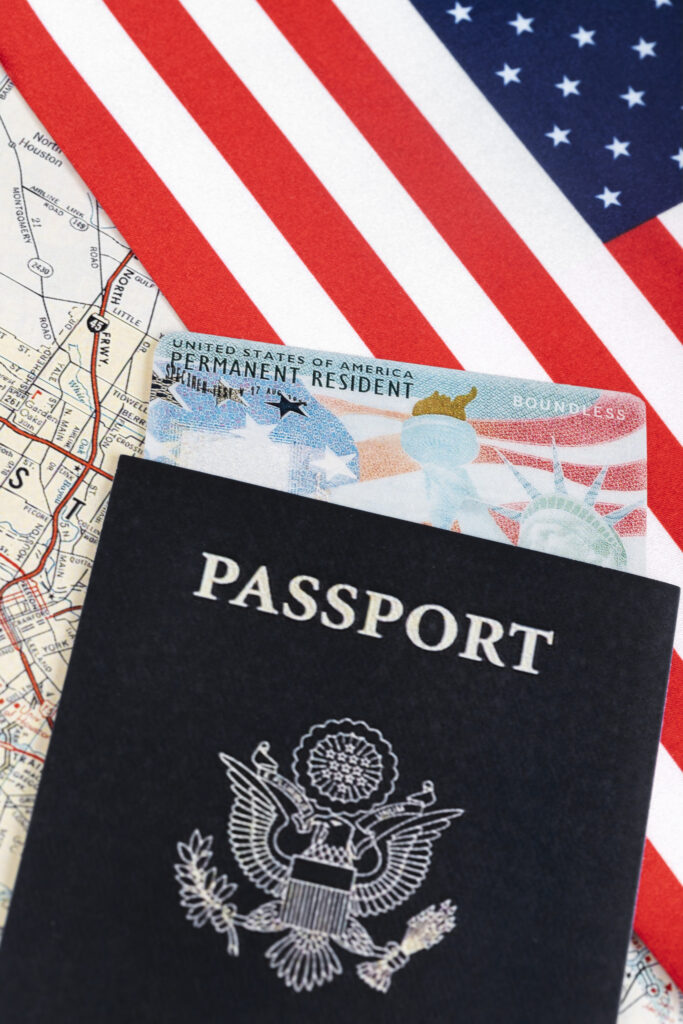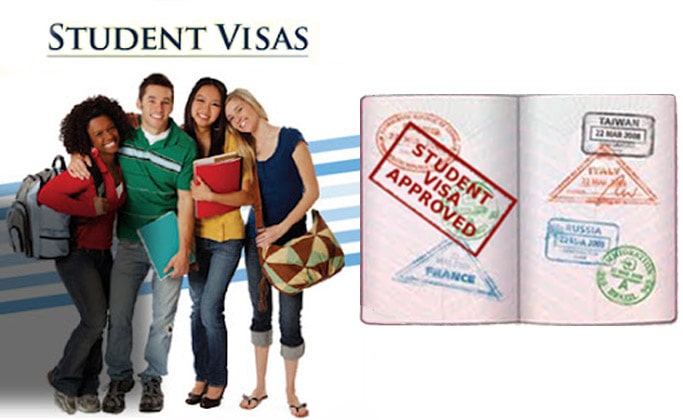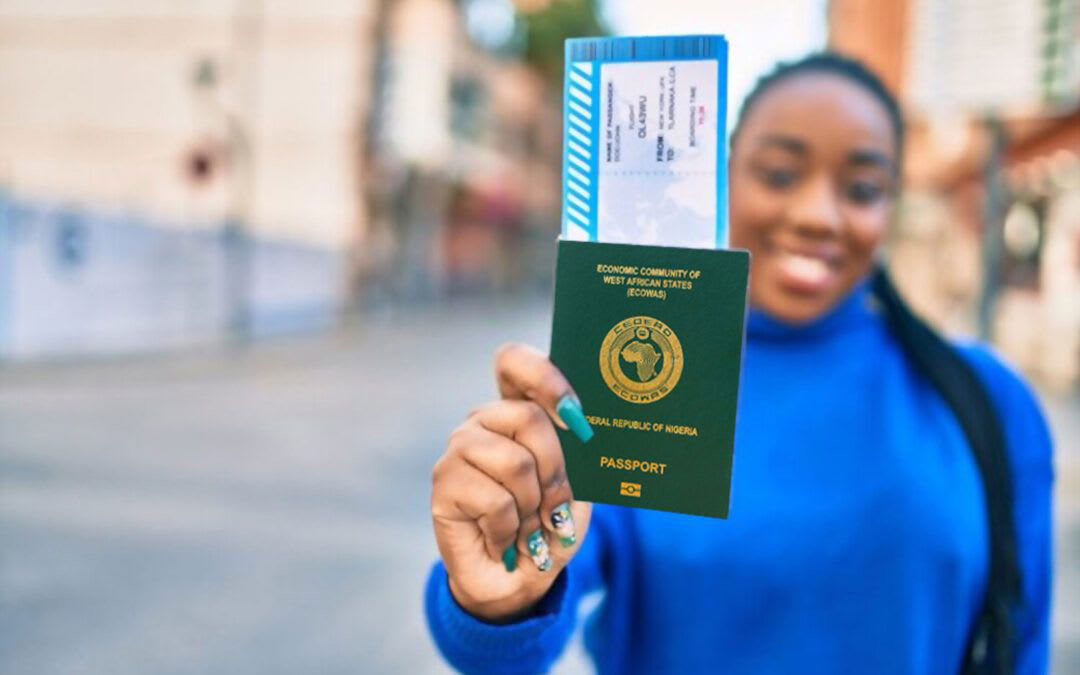
Table of Contents
- Introduction
- Types of US Visas for Nigerians
- Non-Immigrant Visas
- Immigrant Visas
- Most Commonly Requested US Visas by Nigerians
- B1/B2 Visitor Visa
- F1 Student Visa
- H1-B Work Visa
- DV Lottery Visa
- Eligibility Criteria
- Step-by-Step Guide to Applying for a US Visa in Nigeria
- Step 1: Determine the Type of Visa
- Step 2: Complete the DS-160 Form
- Step 3: Pay the Visa Application Fee
- Step 4: Schedule Your Appointment
- Step 5: Attend Your Visa Interview
- Step 6: Track Your Application
- Required Documents for a US Visa Application in Nigeria
- Common Reasons for US Visa Denial in Nigeria
- Tips for a Successful Visa Interview
- Visa Processing Times and Validity
- Renewing Your US Visa in Nigeria
- What to Do After Getting Your Visa
- FAQs About Nigerian US Visa
- Conclusion
1. Introduction
The Nigerian US visa has remained a consistent goal for many Nigerians, whether for tourism, education, business, or permanent relocation. The United States offers numerous visa categories tailored to specific purposes, and understanding the process is the first step toward a successful application that can not lead to a travel ban.
In this detailed guide, we explore everything you need to know about obtaining a US visa as a Nigerian citizen in 2025. From visa types to application steps, interview tips, and common pitfalls, this post will help you navigate the complex landscape of US visa applications confidently without tension.
2. Types of US Visas for Nigerians
The US visa system is divided into two broad categories:
a. Non-Immigrant Visas
These are for temporary visits such as tourism, education, work, or medical treatment. Common non-immigrant visas include:
- B1 (Business)
- B2 (Tourism)
- F1 (Student)
- J1 (Exchange Visitor)
- H1-B (Skilled Worker)
- L1 (Intra-Company Transfer)
b. Immigrant Visas
These are for those intending to live permanently in the US. Common immigrant categories include:
- Diversity Visa (DV Lottery)
- Family-Sponsored Green Cards
- Employment-Based Green Cards
- Spouse or Fiancé(e) of a US Citizen
3. Most Commonly Requested US Visas by Nigerians
B1/B2 Visitor Visa
This is the most popular visa for Nigerians. The B1 visa is for business purposes, while the B2 is for tourism or medical visits. Many Nigerians apply for a combination B1/B2 visa.
F1 Student Visa
For those admitted into US academic institutions. You must show proof of admission, financial support, and ties to Nigeria.
H1-B Work Visa
Used by professionals with specialized skills, typically in IT, healthcare, or engineering sectors.
Diversity Visa (DV) Lottery
Also known as the Green Card Lottery, this program offers a pathway to permanent residency for eligible applicants, including Nigerians, when their country is included in the program.
4. Eligibility Criteria
To be eligible for a US visa, Nigerian applicants must:
- Have a valid international passport
- Demonstrate strong ties to Nigeria (especially for non-immigrant visas)
- Be able to finance their trip or have a sponsor
- Have no criminal record or immigration violations
- Meet the specific requirements of the visa category
5. Step-by-Step Guide to Applying for a US Visa in Nigeria
Step 1: Determine the Type of Visa
Visit the US Visa Information Service for Nigeria to determine the visa class that suits your purpose.
Step 2: Complete the DS-160 Form
This is an online form for non-immigrant visa applications. Fill it carefully and save the confirmation page.
Website: https://ceac.state.gov/
Step 3: Pay the Visa Application Fee
Fees depend on the visa type:
- B1/B2: $185
- F1: $185
- H1-B: $205
Fees are paid via GTBank or Remita.
Step 4: Schedule Your Appointment
After payment, go to https://www.ustraveldocs.com/ng/ to schedule your visa interview at either the Lagos or Abuja US embassy.
Step 5: Attend Your Visa Interview
On the appointment day, arrive early with all your required documents. Be honest and concise during the interview.
Step 6: Track Your Application
You can track your visa status on the CEAC website or collect your passport at the designated DHL pickup location after processing.
6. Required Documents for US Visa Application in Nigeria
- Valid international passport (with at least 6 months’ validity)
- DS-160 confirmation page
- Appointment confirmation
- Visa fee payment receipt
- One recent passport photograph (white background, 5x5cm)
- Supporting documents:
- Bank statements (last 3–6 months)
- Letter of employment
- Letter of admission (for students)
- Invitation letter (if visiting someone)
- Property documents, family ties, etc.
7. Common Reasons for US Visa Denial in Nigeria
- Lack of strong ties to Nigeria – You must prove your intent to return.
- Insufficient financial evidence – Bank statements must align with your trip purpose.
- Incomplete or false information – Mistakes or lies can lead to automatic denial.
- Suspicious travel history – Previous visa overstays or deportations can harm your application.
- Weak interview performance – Nervousness, conflicting answers, or lack of clarity can lead to denial.
8. Tips for a Successful US Visa Interview
- Dress smartly: First impressions matter.
- Be honest: Don’t exaggerate your financial capacity or purpose.
- Speak confidently: Answer questions clearly and concisely.
- Prepare for common questions:
- Why are you going to the US?
- Who is sponsoring your trip?
- What do you do for a living?
- Do you have relatives in the US?
- Provide complete documents: Avoid presenting fraudulent or doctored papers.
9. Visa Processing Times and Validity
- Processing time: Usually 5–15 working days, but can vary.
- Visa validity:
- B1/B2: Usually issued for 2 years (multiple entry)
- F1: Duration of studies + 60-day grace period
- H1-B: Up to 3 years, renewable
- DV Visa: Must be used before the expiry date on the visa stamp
10. Renewing Your US Visa in Nigeria
You can renew your US visa without an interview if:
- Your visa expired within the last 48 months
- You’re renewing the same visa class
- You meet other eligibility criteria
Renewals are done by submitting documents via the Dropbox program at designated locations.
Visit: https://www.ustraveldocs.com/ng/ng-niv-visarenew.asp
11. What to Do After Getting Your Visa
- Check the visa stamp for errors (name, dates, etc.)
- Book your flight only after receiving your visa
- Gather all travel documents
- Familiarize yourself with US Customs regulations
- Plan for accommodation, transportation, and contacts in the US
- Maintain good conduct during your stay to avoid future rejections
12. FAQs About Nigerian US Visa
Q1: How much bank balance is required for a US visa?
There is no fixed amount, but your financial statements must support your proposed trip expenses convincingly.
Q2: Can a Nigerian apply for a US visa without an invitation letter?
Yes. Invitation letters are optional and not required for tourist or business travel.
Q3: Can I reapply after visa denial?
Yes. There is no limit, but you must address the reason for the previous refusal.
Q4: Is travel history important?
Yes. A good travel history can increase your chances, but it is not mandatory.
Q5: How long does it take to get a US visa in Nigeria?
It varies. Generally, 5–15 working days, but it could be longer during peak periods.
13. Conclusion
Applying for a US visa as a Nigerian can be overwhelming, but with the right preparation, accurate documentation, and an honest approach, your chances of success are significantly improved. Each visa type has its unique requirements, so understanding the process beforehand is crucial.
Make sure to follow all guidelines, submit the correct documents, and remain truthful during your visa interview. While approval is never guaranteed, staying informed gives you a much better shot at achieving your goal.
For more updates on visa types, travel insurance, or student visa options, consider checking related posts:
7 Things to Know Before Applying for the US DV Lottery 2025.





